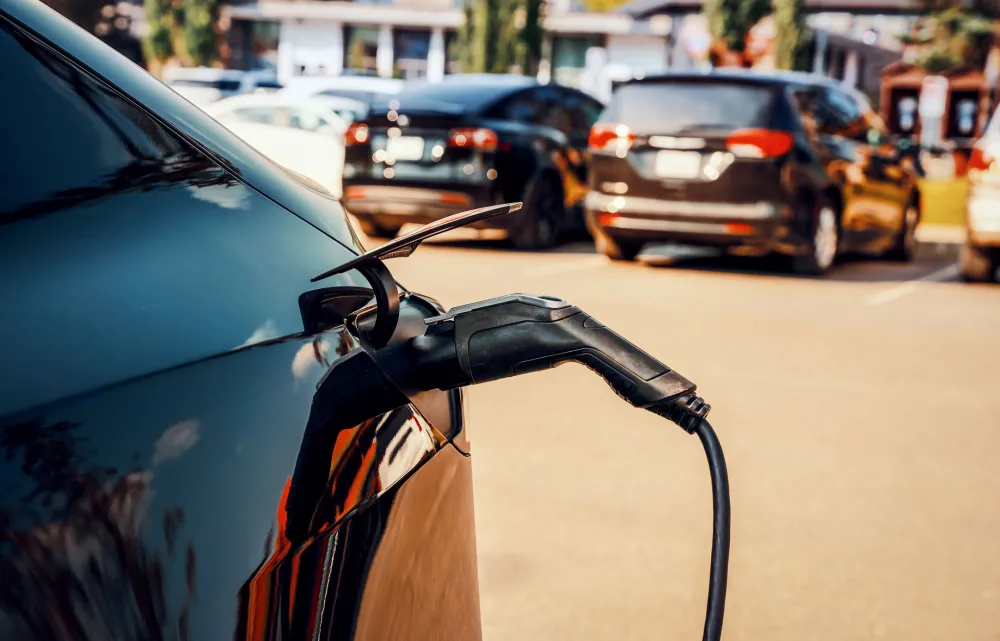As Canada works to protect its economic future, diversify trade and stand strong against rising U.S. protectionism, it’s disappointing to see the federal government considering walking back national electric vehicle sales targets — a policy clearly in the long-term national interest.
Ottawa is working with automakers to “find what would be that right level” for its zero-emission vehicle sales requirement, Industry Minister Mélanie Joly said in a recent interview with The Globe and Mail.
But industry opposition to the target isn’t about what’s best for consumers, workers or the industry in Canada; it’s about protecting short-term profits of U.S.-owned corporations.
This isn’t the time to blink. Canada can’t afford to waver as the global EV race accelerates. We shouldn’t let this industry’s lobbying pressure weaken a policy that underpins our future competitiveness.
Standard is key to a strong supply chain
Canada’s EV Availability Standard, which was finalized in 2023, ensures consumer choice by making EVs available across the country. It requires that at least 20 per cent of new vehicles for sale be zero emission by 2026, with the target increasing each year until 2035. It’s key to Canada building a strong EV supply chain, attracting private investment in infrastructure and helping utilities prepare for future electricity demand.
Canada’s auto industry has already received generous public support in the form of consumer purchase incentives, protective tariffs and subsidies. Still, the industry is pushing back against a policy designed to deliver public benefit. Maintaining the standard isn’t just about reducing emissions. It’s about protecting Canada’s economic sovereignty and building a competitive auto sector in a world where EVs are proliferating rapidly.
In this tenuous situation, Canada should make decisions that serve Canadians – not default to the increasingly protectionist Trump auto strategy, which is explicitly designed to move automaking jobs from Canada to the U.S. We’re already seeing the consequences: delayed investments, paused battery plants and layoffs. Why double down on measures that benefit American jobs and profits at the expense of our own?
Rather than defending a strategy that no longer includes us, Canada should prioritize policies that deliver benefits Canadians will feel in their everyday lives: lower household costs, cleaner air, more consumer choice. That means holding firm on the EV sales mandate and re-evaluating trade measures that keep prices high.
Protect Canadian consumers, not American industry
The American-owned auto industry may oppose the EV mandate and support tariffs that restrict competition, but these positions protect profits, not consumers. In an affordability crisis, protecting inflated prices on behalf of a few large U.S.-owned companies comes at a real cost to Canadian businesses and households. It denies Canadians access to affordable EVs, which cost less to fuel and maintain than gas vehicles, and that are already available in other markets.
Canada’s 100-per-cent tariffs on Chinese-made EVs are a bargain with the auto industry. The public accepts higher prices today in exchange for time and space for domestic industry to scale up and compete. But if automakers continue to delay, that deal is broken. Tariffs that restrict competition raise prices and deepen our dependence on a North American supply chain that serves American interests.
The solution is not to slow down — that would mean phasing out Canada’s automaking sector completely. The solution is to build a Canadian auto industry that can compete globally.
Canada is an attractive market with a skilled work force, clean electricity, abundant critical minerals and strong demand for EVs. Smart policy would use that advantage to attract companies to build here, not just sell here. That’s the kind of bargain Canada struck with companies, such as Honda, Volkswagen and others. To succeed, we must continue to diversify our manufacturing supply chain by building relationships with regions leading in EV production and innovation.
The global transition to EVs is accelerating. Analysts at the International Energy Agency and BloombergNEF project that EVs will make up more than half of global passenger cars sales by 2035. EVs are the future, and companies that adapt will prosper.
So, Canada has a choice.
Choose leadership
One path is managed decline. Stay tied to a Trump policy, double down on internal combustion engines as the rest of the world races ahead with more competitive, better technologies, and watch jobs and investment flow out as Canada remains an exporter of raw materials.
The other path is leadership. Build a domestic EV supply chain, boost affordability and attract global investment. We have the resources, talent and know-how to be a global EV leader — from mining and battery manufacturing to vehicle assembly and charging infrastructure. This isn’t an easy path, but it’s the one that builds Canada’s autonomy, resilience and long-term security.
Path two is the real nation-building opportunity. Let’s not waste it.
This copy of the op-ed has been optimized for the Pembina Institute website. It does not differ substantially from the original published version.








